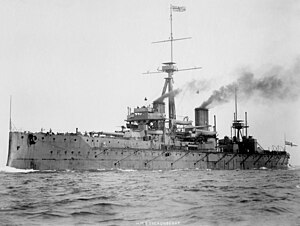
Without a lot of throat clearing, here are some thoughts.
1. In general, the causes of wars between nations states always involve competition for resources, and the breakdown of earlier means for mediating those conflicts non-violently. Look at it this way: A new war comes about at the end of a precious period of peace, or at least relative peace. Otherwise, it wouldn't be a new war at all, just a continuation of the everlasting one, right? Also, I think it safe to assume for simplicity's sake at least that resource conflicts are constant. Wants are infinite, resources are limited! So ... a war begins both because specific resource conflicts exist and because mediation mechanisms that until then had kept the peace have broken down.
2. In Europe, the First World War came about largely as a byproduct of the scramble for Africa. The major powers each wanted to gobble up large parts of Africa for their own use, for mining, for markets, for prestige, etc. This brought them into repeated crisis, although for a long time in the late 19th and early 20th centuries they were able to mediate those crises.
3. The two leading powers, Great Britain and Germany, were each through this period becoming increasingly confident. Their confidence was in part a consequence of the ties they had built up diplomatically and because of the great fleet of Dreadnoughts each was developing. Consider the phrase "dread nought" behind the name of the class of battleships involved. Their dread of nought meant that they were each less inclined to compromise over time. The process of mediation, which entailed mutual fear, was based on cultural memories of the horrors of the Napoleonic era, but that memory was fading and the fear was breaking down.
4. The final crisis, when it came, did NOT especially involve Africa as the precursor crises had. Still, the point is that the mediation possibilities available in those earlier crises had dried up. The system had become so fragile it could not survive a crisis created by the secessionist forces within the Austrian Empire.
Christopher, I don't deny anything you write here, but, in focusing on competition for resources, I believe that you discount the irrational factors that lead to war. One such factor is the desire for power for its own sake. People go into politics because of their will to power, and, once they gain power, that will remains. I believe that anyone who seeks political office ought to automatically be disqualified for it; we could put that in the Constitution. (Have you ever thought of such a constitutional amendment as a way to bring about the anarchy you desire?)
ReplyDeleteTo some extent I made room for irrational factors when I mentioned above that "prestige" was part of the reason the Scramble for Africa was as intense as it was. A patch of desert or marshland that was of no real resource use might nonetheless look good on a map, with a certain country's flag planted there, from the point of view of the egos of that country's elite.
ReplyDelete